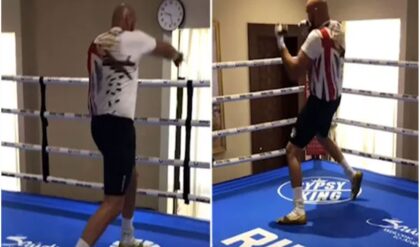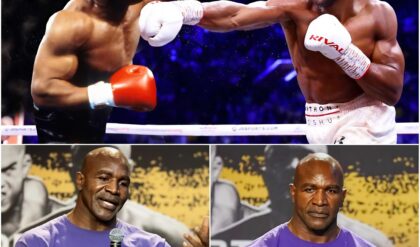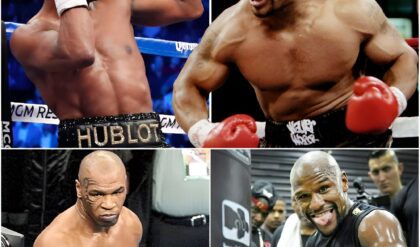The match, on May 25, 1965, was one of the more significant sporting events of the 20th century and resulted in what some call the greatest sports photo of all time. It happened in a town that last year was the scene of a horrific mass shooting.

What was the most iconic sports action photo of the 20th century? Was it Babe Ruth’s called shot? Willie Mays’ catch? Michael Jordan’s “the shot?” Does it matter?
It certainly matters for Lewiston, Maine. On May 25, 1965, a beguiling, perfectly timed photo of boxing legend Muhammad Ali was taken there at a small, remote stadium.
It is still a seminal image that some pundits believe is the greatest sports photo of all time. Sports photographer Neil Leifer captured the young champion in raging full color, his right arm cocked over the fallen slugger Sonny Liston.
It radiates the emotional energy of the era’s most compelling athlete, appropriately known as “the Greatest.” The speedy, outspoken newcomer had not only toppled the sullen, plodding puncher Liston, he symbolized the whole 1960s decade of anger, protest and change, all captured by Leifer’s camera.
Even so, the greatness of the photo needed time to ripen. It was not on the Sports Illustrated cover, and it didn’t win any official awards at the time. But it did propel the photographer’s career and led to a plethora of accolades, including the Lucie Award for Achievement in Sports Photography.
Lewiston’s 15 minutes of Ali fame linked it to sports history for nearly 50 years. Then, on Oct. 25, 2023, a much grimmer brush with fate left 18 dead from a shocking mass shooting.
With that, the town’s identity was tragically reduced to a single name with new meaning: Lewiston. Hijacked by the unthinkable, the town is now more connected to Columbine, Sandy Hook, Parkland, Tree of Life, Uvalde, and Highland Park than it is to Ali. At least for now.
Lewiston is a picturesque community of 37,000 nestled not far from Portland. Its Ali-Liston match was one of the more significant sporting events of the 20th century. Ali, who would soon be the most famous human on earth for his international matches and political activism, had delivered a sudden, pervasive blow to both Liston and the establishment.
Could the specter of Ali’s pivotal moment eventually decouple Lewiston from its more tragic identity?
Ali vs. Liston, over in less than two minutes
Ali began as a brash, outspoken challenger, then surprised the world when he won the title, converted to Islam and dropped his given name Cassius Clay. He immediately rankled the sports world with his uncompromising wit, criticism and protests.
Every Ali title fight became an extravaganza. Ali actually defeated the heavy-fisted Liston twice, first in Miami Beach on Feb. 25, 1964, followed by the Lewiston rematch in 1965. Ali stunned the sports world both times.
Even fate played a role. Fight promoters originally planned the highly anticipated rematch for Boston, but criticism of Ali for his Black Muslim connections was growing, plus Liston had his own issues with the law stemming from alleged connections to organized crime. Boston’s Suffolk County district attorney sought to block the fight, so its backers pulled the match from Boston just 18 days before the scheduled bout.
Maine Gov. John Reed quickly offered Lewiston. Less than 150 miles from Boston, it was home to the Central Maine Youth Center that could seat up to 4,500 people on short notice. With the fight back on, the media and onlookers flooded Lewiston. But it took under two minutes for Ali to knock Liston out.
The image of Ali’s taunting was captured by two different photographers. One of them, Leifer, took his photo in color. The Lewiston arena even added to the photo’s mood. Boxing attracted legions of cigar-smoking fans in those days, so given the small stadium, a smoky bluish haze added a mystical aura over Ali.
Experts consider composition, timing, subject matter, lighting, emotion and narrative in evaluating a photograph. Ali at Lewiston nailed them all.
Lewiston’s shooting tragedy promptly cast a pall over the town’s charm, solitude and link to Ali. America has almost become numb to frequent mass shootings at multiple towns, schools, clubs and synagogues. Columbine will always be the dark Columbine, Sandy Hook the tragic Sandy Hook, and the July 4, 2022, parade attack in Highland Park, Illinois, will always trigger a local Independence Day sadness. (That one took place in my own neck of the woods.)
Since I represented Ali once in 1990 and spent a two-hour lunch with him at Chicago’s Gene & Georgetti’s steak house, I can attest to his timeless charisma. So there is still hope for Lewiston.
If a community was famous to begin with, it might overcome the stain of a mass shooting. In Las Vegas, its gaudy image has survived tragedy. Can Lewiston reclaim its Ali glory? It can. But for most of America, being famous for a shooting, rather than in spite of one, is becoming a uniquely grim burden.
Eldon Ham is a member of the faculty at IIT/Chicago-Kent College of Law, teaching sports, law and justice. He is the author of five books on the role of sports history in America.
The Sun-Times welcomes letters to the editor and op-eds. See our guidelines.
The views and opinions expressed by contributors are their own and do not necessarily reflect those of the Chicago Sun-Times or any of its affiliates.





